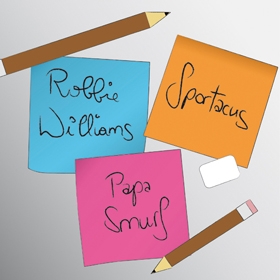 This post is really for other teachers but if you’re a student and your mates are up for it, by all means read on and give this a go! One challenge we all face is to get the difference between short stories and personal essays absolutely clear in our heads. Of course there are often similarities – use of descriptive writing, opportunity to draw on personal experiences for inspiration, first person narration. However the fundamental differences are really important too.
This post is really for other teachers but if you’re a student and your mates are up for it, by all means read on and give this a go! One challenge we all face is to get the difference between short stories and personal essays absolutely clear in our heads. Of course there are often similarities – use of descriptive writing, opportunity to draw on personal experiences for inspiration, first person narration. However the fundamental differences are really important too.
- A short story is fictional.
- The narrator of the story can be anyone – a homeless person, a world leader, God, Hitler or a sheep.
- You can use first person OR third person narration.
- There is a plot, a setting, characters, a limited timescale (the tighter the better in my experience) and oftentimes a twist (again, having one is generally better than not having one in my experience!).
—
- By contrast a personal essay is based on reality (but feel free to exaggerate & even make things up as long as they sound believable – here if you want to include a talking sheep you’ll also have to mention the drugs you were on when this happened!!!).
- The speaker is YOU – you are writing as yourself, a teenager who lives in Ireland. You cannot be a sheep for a personal essay 😉
- You will (and should) use descriptive writing but you will also use quotes from your favourite bands and anecdotes from your childhood or family and offer your thoughts and opinions and attitudes and beliefs and feelings. You may use rhetorical questions and lists and statistics. In other words, every technique available to you.
- You are not limited to a fixed timescale – a short story is a slice of life whilst a personal essay can be a montage of various events from past to present to future, from you, to your family and friends, to other people and cultures, from local to national to global.
In order to make this REAL for my students, I recently did this experiment in class. Everyone wrote a mini personal essay of between 200 and 300 words (including me). As a prompt we began with the words “My name is ___________. Let me tell you a little bit about the kind of person I am”. Each of us was allowed to give ‘clues’ to our identity but we made it a rule that you couldn’t make it too obvious. The reason I joined in was because they bullied me into it!!! Ok, I’m being facetious. But in reality I think it made them feel less self-conscious about ‘revealing’ themselves, laying themselves bare to each other as it were (the essence of being a good writer if you ask me!). They also insisted that I write in the persona of me as a teenage girl. Again this made absolute sense – if I started referring to my husband and child I’d really have given the game away 😉
After creating a first draft, we all typed them up, same font and font size, I checked for spelling and grammatical errors (God help me this was time consuming) and then I printed them off. The first two girls who finished (thanks Lauren and Cathy) sat down with the list of names of people in the class and five sticky notes and created groups which were a genuine mixture of personalities and which kept close friends apart. This meant they were facing a real challenge guessing who the writer was and more importantly they were getting a true insight into people in the class they might not know very well. Each group of five was given six mini-essays (all bundles included my one but no group got a bundle including any of their own). Their job was to figure out who the writer was, a variation on the game of guess who where you have a post it note stuck to your forehead and you have to figure out what famous person’s name is written on it.
All of this took place over four 40 minute classes and not rushing things was definitely the key to success. My students were also pretty brave in finding the courage to reveal themselves publicly in front of their peers. Getting me to join in led to some pretty funny moments – any student in their right mind would be mortified to be mixed up with their teacher (the one person it is absolutely NOT COOL to be similar to in any way!). We did this immediately after a week of working on and creating short stories so the contrast helped in embedding the distinction between short stories and personal essays in their brains (at least I hope so). Finally, teachers, if you grade this EVERYONE GETS AN A. You cannot and must not give someone’s personality anything less, nor did I want to – this class are a great bunch of women and I’m lucky to be their teacher. In a few weeks time we’ll come back to them and analyse them from a writing point of view – what works, what doesn’t, which bits keep the reader most engaged and entertained but in the meantime I think they’ve learned a lot about personal essays and about each other (as have I) .
Below I’ve included my effort if you want a template to work off!!!
—
Who am I?
I guess it really depends who you ask. My mother says I’m a ‘flibbertigibbert’, flitting from one thing to the next, never sitting still long enough to eat a decent dinner – or wash up afterwards! My father says I’m a nutcase – well actually, he sings a song “you’re a nut, beep, beep” and grabs my nose and twists it for the “beep beep” bit (funny man!) My sister tells me repeatedly that I’m ‘the adopted one’. I am a bit odd I suppose, but refusing to recognise that we’re even related is a bit harsh don’t you think?
My boyfriend says I’m pretty and smart. Far too pretty and smart to be going out with him. He’s wrong but I guess it’s nice to have someone who thinks you’re special. Special in a good way, not special in a ‘not the shapest tool in the box’ kind of way. Although on occasion I have done things that might cause people to label me a complete and utter spanner!
And me? I’m not sure how I feel about myself. Some days I think I’m just your average teenager, trying to figure it all out and not do too much homework along the way. Some days I think I’m a supersonic bolt of electric lightening sent to save the world from spinning out of control. And some days I wish, with all the power in every fibre of my being that I could just be somebody else. Just for a little while. And then those days pass and I get back to the business of just being me. It’s a tough job baby, but somebody’s gotta do it!
 Here are a few links to force your brain into thinking about the least fascinating aspect of becoming good at English. Spelling correctly.
Here are a few links to force your brain into thinking about the least fascinating aspect of becoming good at English. Spelling correctly.






